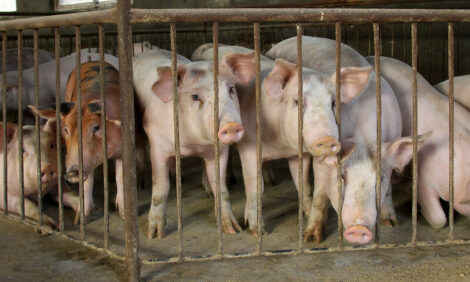



New Pig Welfare Standards Must be Enforced
EU - European Commissioners cannot sit back - they must take tough action against any countries that flout new rules partially banning the use of stalls for sows, Conservative MEP Vicky Ford has warned.The East of England MEP was speaking at a Brussels briefing she organised to highlight issues affecting British farmers. These included the new EU directive which will come into force next January, banning the use of stalls except in the first four weeks of gestation.
The UK voluntarily introduced a unilateral ban on the use of sow stalls 13 years ago in the interests of animal welfare.
The new rules for the pig industry are intended to create a more-even set of welfare standards across Europe and stop some farmers - such as those in Britain - being undercut by competitors using less welfare-friendly methods.
But there are fears that many countries will have only a fraction of their farms ready to comply when the partial ban on stalls takes force in just over nine months' time.
Mrs Ford said: "All MEPs will tell you that they get more emails about animal welfare than practically all other subjects put together. From factory farming to food labelling, these are issues which are important to the consumers we represent. It will not be good enough for our consumers if we refuse to listen to them.
"If the Commission sits back and does nothing then MEPs will propose either new legislation or amendments either to CAP legislation or to other directives.
"As legislators we should listen to experts and learn from experience. In 1999 the UK unilaterally banned sow stalls. Whilst pigs may have been happier, about half the British pig producers collapsed due to cheaper imports. The simple lesson from this is that animal welfare standards need to be agreed internationally, not just nationally.
"However, it is not acceptable for countries to agree new legislation and then fail to implement it.
"We are working closely with the pig industry to keep up the pressure on Europe, so all countries meet the European ban by January 2013."








